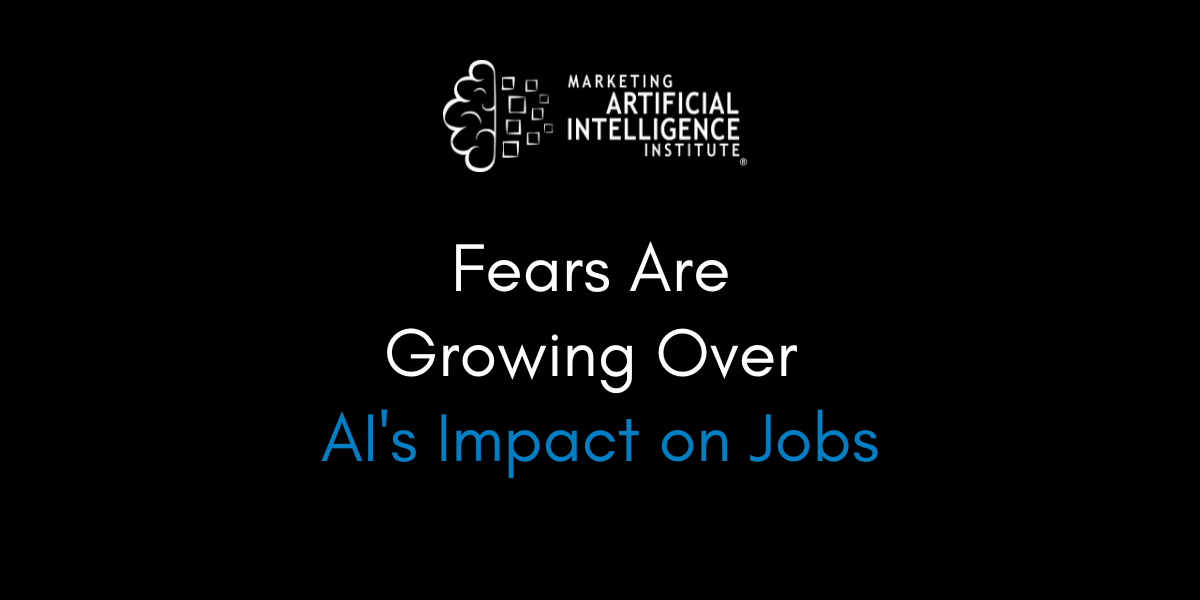There’s a growing chorus of fear and alarm about AI’s impact on jobs and human labor after a few recent high-profile developments.
First, Elon Musk made headlines when he declared at Viva Tech 2024 in Paris that "probably none of us will have a job" thanks to AI. He alluded to the fact jobs would become optional as AI produces everything we need, but that “universal high income” would be needed to make this future an appealing one.
Second, Klarna CEO Sebastian Siemiatkowski faced some serious backlash after boasting on X about how AI was helping his fintech company save an estimated $10 million in 2024 by replacing the need for human workers.
"We're spending less on photographers, image banks, and marketing agencies," he wrote. "Our in-house marketing team is HALF the size it was last year, but is producing MORE." Siemiatkowski also said the company cut external marketing agency expenses by 25%.
(He later deleted the post after overwhelming negative responses.)
Last but certainly not least, the most thought-provoking take came from Avital Balwit, Chief of Staff to Anthropic CEO Dario Amodei.
In a viral article titled "My Last Five Years of Work," the 25-year-old Rhodes Scholar wrote that her experiences working on AI frontier models led her to believe all human work would be automated by AI:
"These next three years might be the last few years that I work. I am not ill, nor am I becoming a stay-at-home mom, nor have I been so financially fortunate to be on the brink of voluntary retirement. I stand at the edge of a technological development that seems likely, should it arrive, to end employment as I know it."
Just how worried should we be about AI’s impact on our jobs?
I got the answers from Marketing AI Institute founder and CEO Paul Roetzer on Episode 101 of The Artificial Intelligence Show.
We need to be talking about this
"I hope we're starting to see a sense of urgency to have the conversations," says Roetzer, because it's needed.
"The Klarna CEO is saying the quiet part out loud. I have sat in executive meetings and board meetings over the last 12 to 18 months, and these are the exact conversations that are happening."
Roetzer says many companies are asking: How do we cut agency spend? Do we need as many outside agencies? Are we able to bring work in-house now with our AI-augmented teams?
"There are absolutely the discussions of 'Do we need as many humans doing the work?'" he says. "These are the discussions that are happening, whether you think they are or not."
Taking the more responsible approach
That doesn’t mean slashing headcount is the answer.
Roetzer believes every company gets a choice about how to take advantage of AI's potential to boost productivity, creativity, innovation, and decision-making.
"What we will do as a company is we will continue to grow, needing to hire fewer people to achieve those growth goals," he says.
"I think most responsible organizations will take a human-centered approach to this and say, 'Yeah, the AI is driving efficiency and productivity, and we're going to keep the people we have.' That’s the best case scenario.”
Knowledge workers are in denial
Still, Roetzer admits Balwit's article struck a nerve and raised important questions. One quote in particular from the article jumped out at him when Balwit wrote:
“The general reaction to language models among knowledge workers is one of denial. They grasp at the ever diminishing number of places where such models still struggle, rather than noticing the ever-growing range of tasks where they have reached or passed human level.”
Roetzer agrees there's too much denialism around AI's disruptive potential.
"I think most people just choose to deny that this is happening, that it's going to be disruptive in the very near future, and they just go about their lives," he says.
“We need to start having more serious discussions about potential paths AI could take business, education, the economy, and society as its capabilities impact the world.”
His advice? Start preparing for different possible futures now.
"If you're a leader, if you're the CEO of a company, you're building your own business, or you're even leading a department, you have to start to form an opinion about what you think is going to happen next, so you can start preparing."
Mike Kaput
As Chief Content Officer, Mike Kaput uses content marketing, marketing strategy, and marketing technology to grow and scale traffic, leads, and revenue for Marketing AI Institute. Mike is the co-author of Marketing Artificial Intelligence: AI, Marketing and the Future of Business (Matt Holt Books, 2022). See Mike's full bio.



